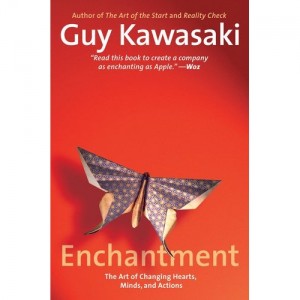It’s easy to be pessimistic today, especially when it comes to business. Those of us not in the upper two percent, those of us with little in our pockets but our sweaty palms, those of us who don’t just feel beaten-up by big business but have the financial and even physical marks to prove it, those of us who are the “other” under the heels of the “us” that is Corporate America, we can easily draw the conclusion that the only time virtue comes up is when the fat cats greedily giggle over their “there’s no virtue in business besides money” mantra.
These feelings infiltrate, or, if you prefer “trickle down” (the only time the principal actually appears to work) into every aspect of our world, at every level. From realized fears of neglect and victimization in our political system to the mentalities of school bullies, controlling abusers, and national “pro-life” terrorists., it seems we are increasingly forced to live in a black & white world of virtue — and to consider which side we are on… Should we remain the down-trodden good guy who will finish last, if at all? Or should we give in to the dark side, just to survive?
I hear this echoed in discussions everywhere. Activists wondering if they should adopt the same tactics their opponents successfully use. Entrepreneurs who cringe at identifying themselves as such because of what “being in business” implies. Parents wondering how they can continue to teach their children to be “good,” “fair,” and “generous,” when their children see what the rich and ruthless reap.
It seems hopeless.
Enter hope. Or rather enchantment.
 Enchantment: The Art of Changing Hearts, Minds, and Actions
Enchantment: The Art of Changing Hearts, Minds, and Actions, by Guy Kawasaki is primarily touted as a business book — a small-business or entrepreneurial manifesto. And sure, it works for that. But more than that, Kawasaki’s book explores the power of enchantment.
Enchantment can occur in villages, stores, dealerships, offices, boardrooms, and on the Internet. It causes voluntary change of hearts and minds and therefore actions. It is more than manipulating people to help you to get your way. Enchantment transforms situations and relationships. It converts hostility into civility. It reshapes civility into affinity. It changes skeptics and cynics into believers.
Firstly, Enchantment is a breath of fresh, good, air; it’s an affirmation that good guys and gals don’t have to finish last. And there are real stories, real cases, of real good people who are examples.
Secondly, Kawasaki outlines the principals of enchantment — sound psychological principals and insights into human behavior that are easy to read and even easier to comprehend.
Thirdly, the book inspires action. Heart lightened with the affirmation and validation that Good is indeed good, heart warmed by the examples of Good successful people, and armed with the knowledge of how it all works, you, the reader, are inspired to live enchantingly.
It’s good that you are inspired because the author is now going to offer you opportunities to implement the strategies.
Kawasaki provides a checklist of things to consider and opportunities to explore, rather like self-help books do. (In the book’s Coverphon, there’s evidence neither the author nor the publisher would like this “soft” self-help comparison; but I think the work is to be commended for it’s uplifting, affirming, readily understood, easy to incorporate strategies as well as it’s “hard” business acumen.)
And, yes, the author includes plenty of tips and methods for businesses and entrepreneurs to put to work online (i.e. push and pull technologies such as email, Twitter, Facebook, websites and blogs, etc.).
While nearly all stories, prompts and checklists are business related (including chapters on how to enchant your boss, resist enchantment, etc.), there’s no reason the information couldn’t be applied to any facet of your life, including parenting. Where else does one need to model integrity more?
(There are even concrete stories for you to counter wise-ass remarks from kids who dare you to prove that greed and might are the only ways to get ahead — in fact, stories and examples that suggest that life ought not to be viewed as a race in which one must “get ahead,” but rather how to work for the betterment of many.)
In short, Enchantment is just the breath of fresh air that good guys and gals need to reaffirm their vows to be a person of delightful integrity. It gives us the tips to enchant — and the permission to be enchanted with ourselves.
PS If you do buy a copy of Enchantment, you might want to know about this enchanting offer from Guy:
When people anywhere in the world buy a copy of Enchantment in any form (paper, recording, or ebook), they can get a free copy of Garr’s book called Presentation Zen.
Presentation Zen is one of the best books ever written about making great presentations. Seth Godin said this about it: “Please don’t buy this book! Once people start making better presentations, mine won’t look so good.”
Disclaimer: I was given a free review copy of this book. While the free copy was appreciated and enjoyed, the fact that it was free has no bearing on this review or the contents of this post — other than the legal requirement to make such a statement.